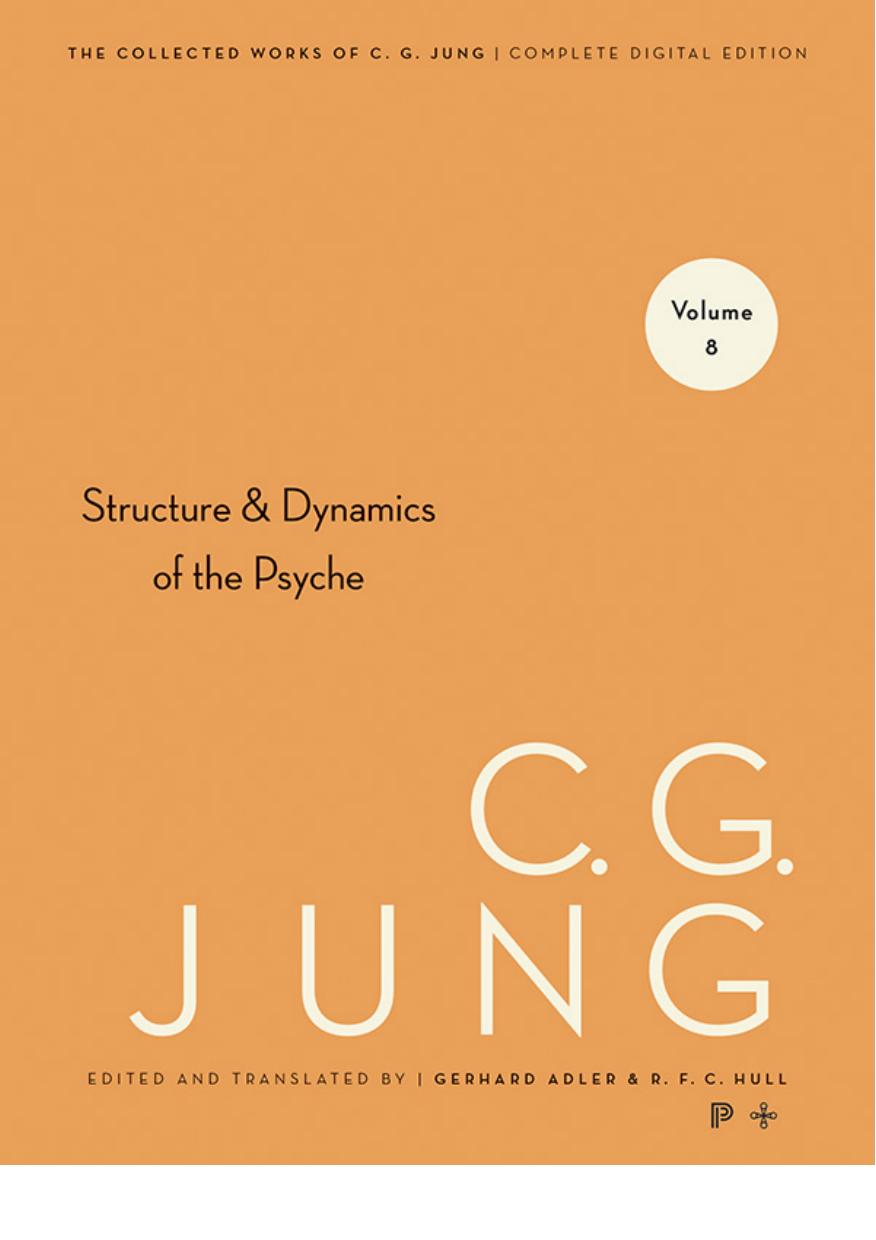Collected Works of C.G. Jung, Volume 8: Structure & Dynamics of the Psyche by Jung C. G. Hull R. F.C. Adler Gerhard

Author:Jung, C. G., Hull, R. F.C., Adler, Gerhard [Jung, C. G.]
Language: eng
Format: epub, pdf
Publisher: Princeton University Press
Published: 1975-02-24T04:00:00+00:00
SPIRIT AND LIFE1
[601] The connection between spirit and life is one of those problems involving factors of such complexity that we have to be on our guard lest we ourselves get caught in the net of words in which we seek to ensnare these great enigmas. For how can we bring within the orbit of our thought those limitless complexes of facts which we call “spirit” or “life” unless we clothe them in verbal concepts, themselves mere counters of the intellect? The mistrust of verbal concepts, inconvenient as it is, nevertheless seems to me to be very much in place in speaking of fundamentals. “Spirit” and “life” are familiar enough words to us, very old acquaintances in fact, pawns that for thousands of years have been pushed back and forth on the thinker’s chessboard. The problem must have begun in the grey dawn of time, when someone made the bewildering discovery that the living breath which left the body of the dying man in the last death-rattle meant more than just air in motion. It can scarcely be an accident that onomatopoeic words like ruach, ruch, roho (Hebrew, Arabic, Swahili) mean “spirit” no less clearly than the Greek and the Latin spiritus.
[602] Do we know then, for all our familiarity with the verbal concept, what spirit really is? Are we sure that when we use this word we all mean the same thing? Is not the word “spirit” a most perplexingly ambiguous term? The same verbal sign, spirit, is used for an inexpressible, transcendental idea of all-embracing significance; in a more commonplace sense it is synonymous with “mind”; it may connote courage, liveliness, or wit, or it may mean a ghost; it can also represent an unconscious complex that causes spiritualistic phenomena like table-turning, automatic writing, rappings, etc. In a metaphorical sense it may refer to the dominant attitude in a particular social group—the “spirit” that prevails there. Finally, it is used in a material sense, as spirits of wine, spirits of ammonia, and spirituous liquors in general. This is not just a bad joke—it is a part of the venerable heritage of our language, while on the other hand it is a paralysing encumbrance to thought, a tragic obstacle to all who hope to scale the ethereal heights of pure ideas on the ladders of words. When I utter the word “spirit,” no matter how accurately I may define the meaning I intend it to convey, the aura of its many other meanings cannot be wholly excluded.
[603] We must therefore ask ourselves the fundamental question: What is really meant by the word “spirit” when it is used in connection with the concept “life”? Under no circumstances should it be tacitly assumed that, at bottom, everybody knows just what is meant by “spirit” or “life.”
[604] Not being a philosopher, but an empiricist, I am inclined in all difficult questions to let experience decide. Where it is impossible to find any tangible basis in experience, I prefer to leave the questions unanswered.
Download
Collected Works of C.G. Jung, Volume 8: Structure & Dynamics of the Psyche by Jung C. G. Hull R. F.C. Adler Gerhard.pdf
This site does not store any files on its server. We only index and link to content provided by other sites. Please contact the content providers to delete copyright contents if any and email us, we'll remove relevant links or contents immediately.
The Art of Thinking Clearly by Rolf Dobelli(10455)
Mindhunter: Inside the FBI's Elite Serial Crime Unit by John E. Douglas & Mark Olshaker(9324)
Change Your Questions, Change Your Life by Marilee Adams(7761)
Nudge - Improving Decisions about Health, Wealth, and Happiness by Thaler Sunstein(7693)
Mastermind: How to Think Like Sherlock Holmes by Maria Konnikova(7323)
The Power of Now: A Guide to Spiritual Enlightenment by Eckhart Tolle(5760)
Men In Love by Nancy Friday(5234)
Altered Sensations by David Pantalony(5094)
Factfulness: Ten Reasons We're Wrong About the World – and Why Things Are Better Than You Think by Hans Rosling(4737)
The Confidence Code by Katty Kay(4251)
Thinking in Bets by Annie Duke(4218)
Man and His Symbols by Carl Gustav Jung(4131)
The Worm at the Core by Sheldon Solomon(3486)
Why Buddhism is True by Robert Wright(3446)
Liar's Poker by Michael Lewis(3442)
Three Women by Lisa Taddeo(3425)
The Inner Life of Animals by Peter Wohlleben(3311)
Descartes' Error by Antonio Damasio(3271)
How Music Works by David Byrne(3261)
